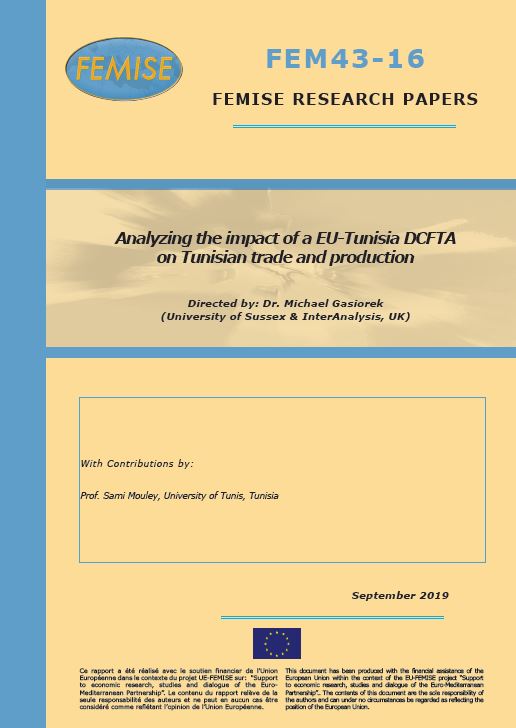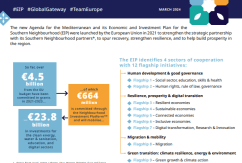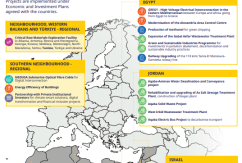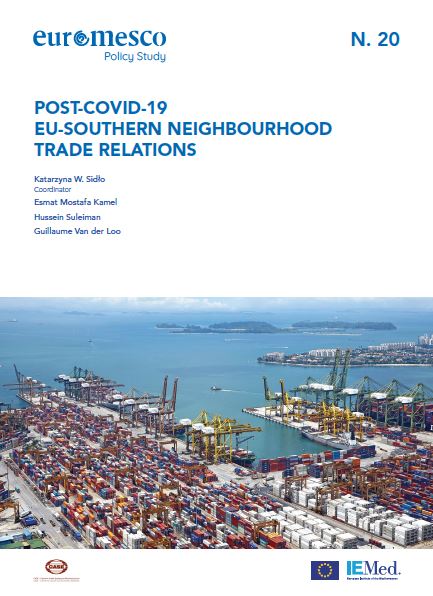FEMISE Research Paper FEM43-16: Analysing the impact of a EU-Tunisia DCFTA on Tunisian trade and production


Since 2016, the EU and Tunisia have been in the process of negotiating a “Deep and Comprehensive Free Trade Agreement (DCFTA). The proposed DCFTA forms part of the on-going development of the EU’s European Neighbourhood policy particularly with regard to the Southern Neighbourhood.
The EU-Tunisia DCFTA is intended to build upon the existing Association Agreement (AA), by increasing both the scope and depth of the existing trading relations. With regard to scope, where the existing AA is largely focused on manufactured goods, the DCFTA aims to also achieve more agricultural liberalisation and to some extent services liberalisation. With regard to depth, the objective is to provide for much more meaningful “deep” integration through the greater elimination of non-tariff barriers to trade for example with regard to technical standards, closer legislative approximation to the EU’s Single Market, and improved trade facilitation measures.
These proposed changes in tariffs, quotas and non-tariff barriers will impact on trade between the EU and Tunisia, as well as with third countries. Currently there is very little empirical evidence of what the impact on patterns of trade might be. This paper provides an analysis of the possible impact on the trade and production of specific Tunisian manufacturing industries.
The paper is organised as follows. The first section summarises the background to the integration process between Tunisia and the EU, as well as identifying the key changes in the patterns of trade. The second section provides a literature review which summarises existing studies on the impacts of closer integration. In the third section we detail the model used. The fourth section discusses the results, and the final section concludes.





































